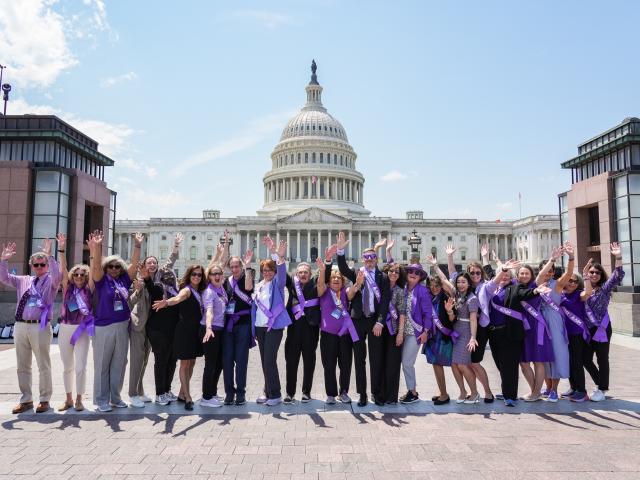Washington, D.C., May 14, 2024 — The Alzheimer’s Association and the Alzheimer’s Impact Movement (AIM) strongly support the bipartisan introduction of the Accelerating Access to Dementia & Alzheimer’s Provider Training (AADAPT) Act in the Senate. This critical legislation will empower primary care providers to better understand and diagnose Alzheimer’s and other dementia while emphasizing high-quality, person-centered care in community-based settings.
“The bipartisan AADAPT Act will not only increase access to early diagnosis and quality dementia care in our communities, but it will reduce geographic barriers and the cost of care,” said Robert Egge, AIM president and Alzheimer’s Association chief public policy officer. “With FDA-approved Alzheimer’s treatments and more in the pipeline, expanding access to a timely and accurate diagnosis is even more critical. Thank you to the bipartisan congressional champions for introducing this important legislation and supporting individuals living with Alzheimer’s and other dementia.”
Only half of those living with Alzheimer’s are diagnosed. Of those diagnosed, only half are told of their diagnosis. A timely and accurate diagnosis of Alzheimer’s can improve access to care and support services, enhance quality of life, and reduce the financial impact of the disease.
In 85% of cases, the initial diagnosis of Alzheimer’s is made by a non-dementia specialist — usually a primary care provider. However, most report they do not feel prepared to provide care for those diagnosed because they are not dementia specialists. Overburdened primary care providers are too often unable to access the latest patient-centered dementia training.
Through the use of Project ECHO, the AADAPT Act would provide virtual Alzheimer’s and dementia education and training to more primary care providers to help them better detect, diagnose, care, and treat Alzheimer’s and other forms of dementia. The bipartisan bill would expand the current ECHO program to provide grants specifically for Alzheimer’s and dementia to address the knowledge gaps and workforce capacity issues primary care providers face.
The bipartisan AADAPT Act was introduced by Sens. Amy Klobuchar (D-Minn.) and Shelley Moore Capito (R-W.Va.). Reps. Buddy Carter (R-Ga.), Nanette Barragán (D-Calif.), Darin LaHood (R-Ill.) and Paul Tonko (D-N.Y.) introduced the AADAPT Act in the House last month.
The Alzheimer’s and Dementia Care ECHO Program connects dementia care experts with primary care providers to address knowledge gaps using free, remote continuing education. Importantly, ECHO’s tele-mentoring program reaches rural, frontier and medically underserved areas where primary care providers are especially strained.
Quality care delivered by trained providers leads to better health outcomes for individuals and caregivers and puts less strain on health systems. Project ECHO programs have shown they can help address the knowledge gaps felt by many primary care providers. Through the expansion of Project ECHO, the bipartisan AADAPT Act would improve dementia workforce preparedness in communities throughout the country.
